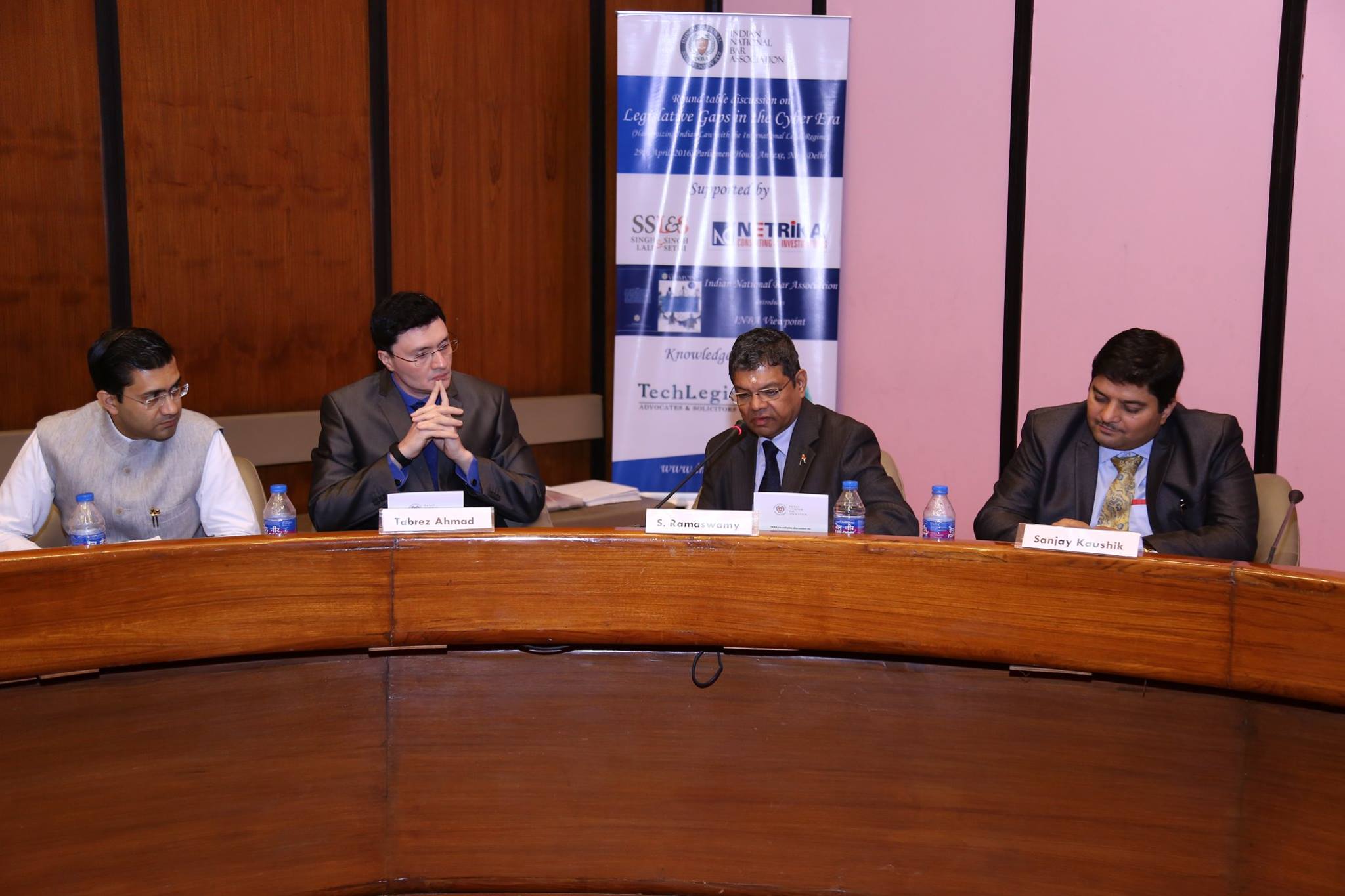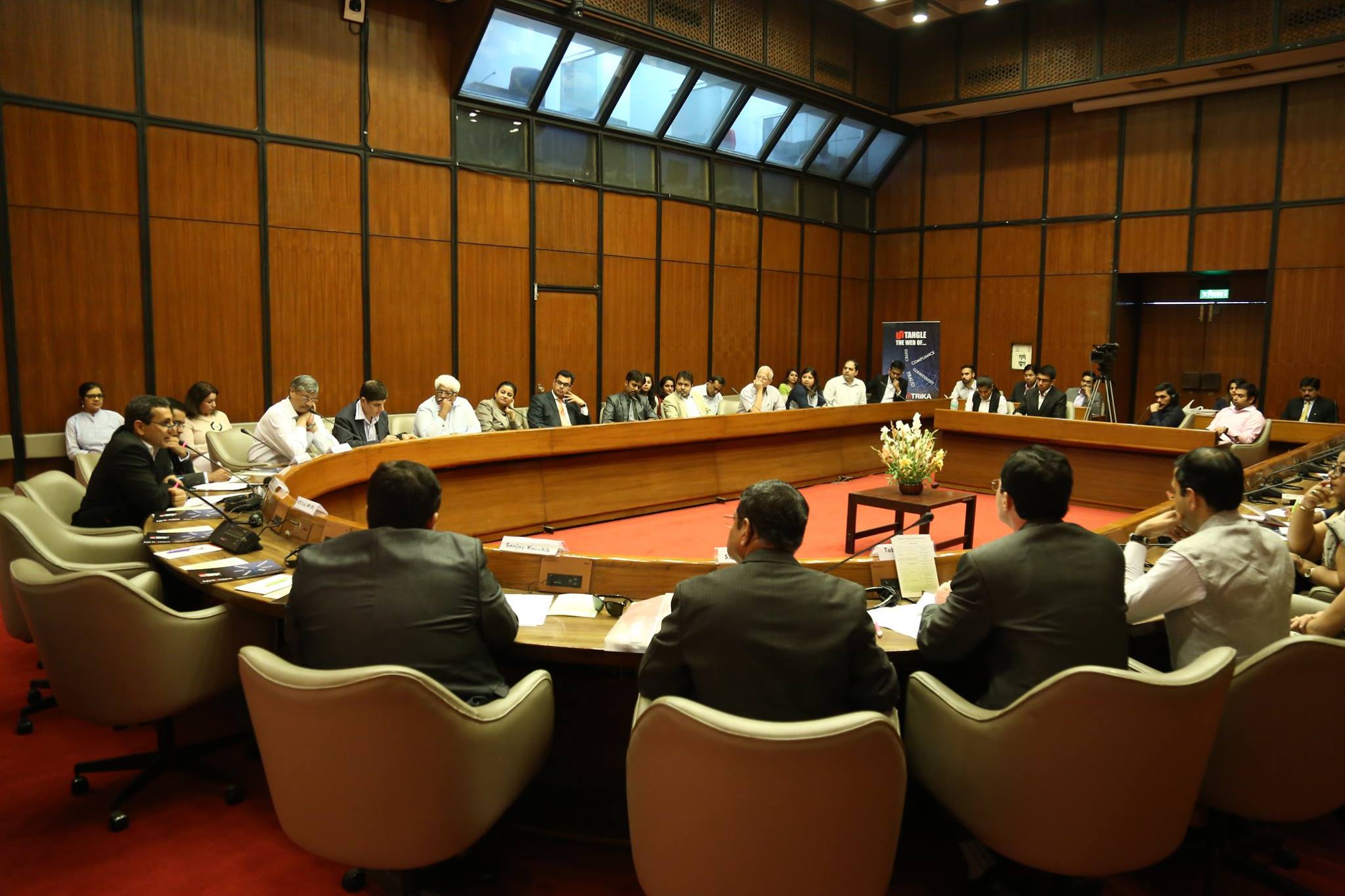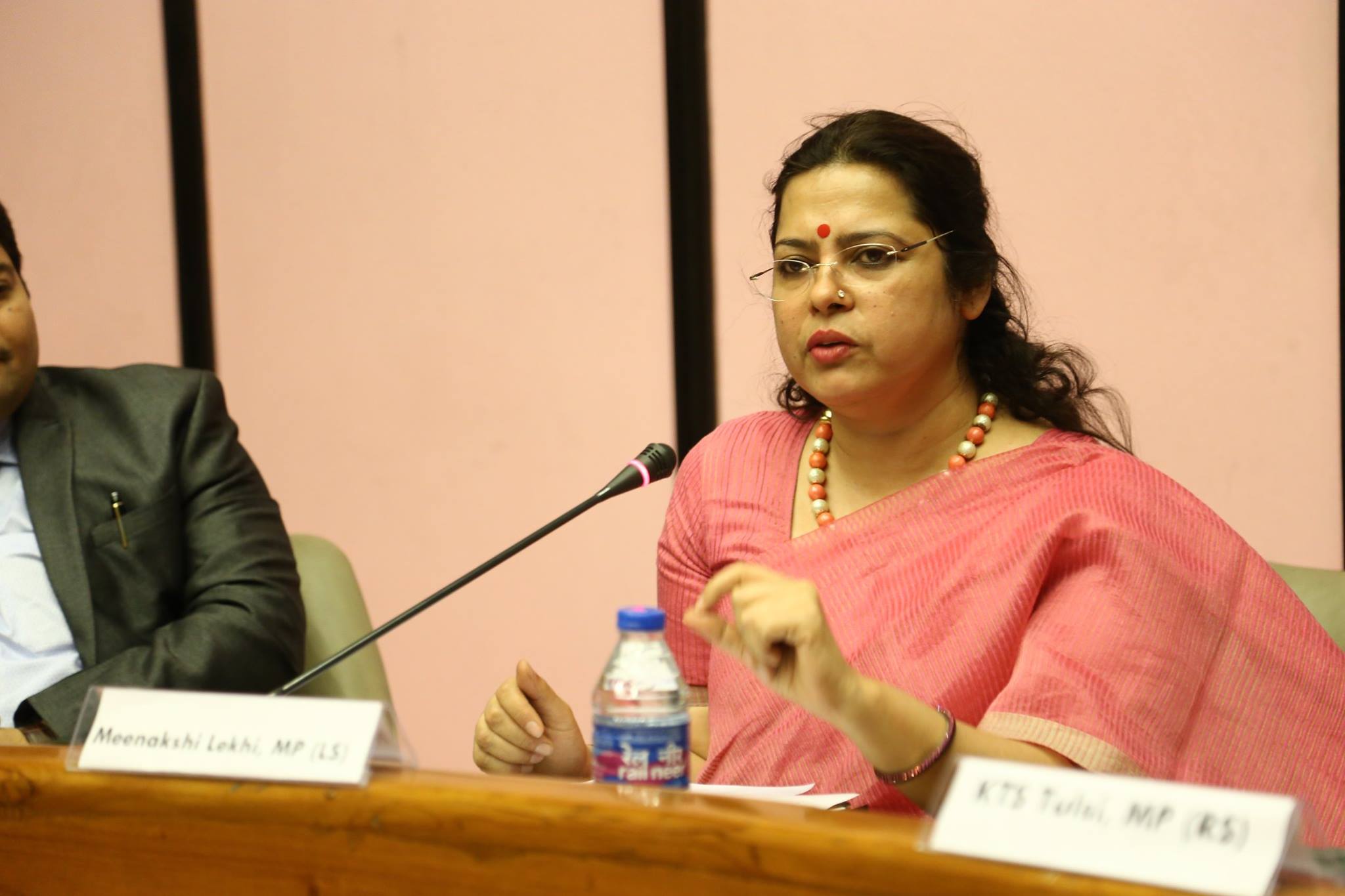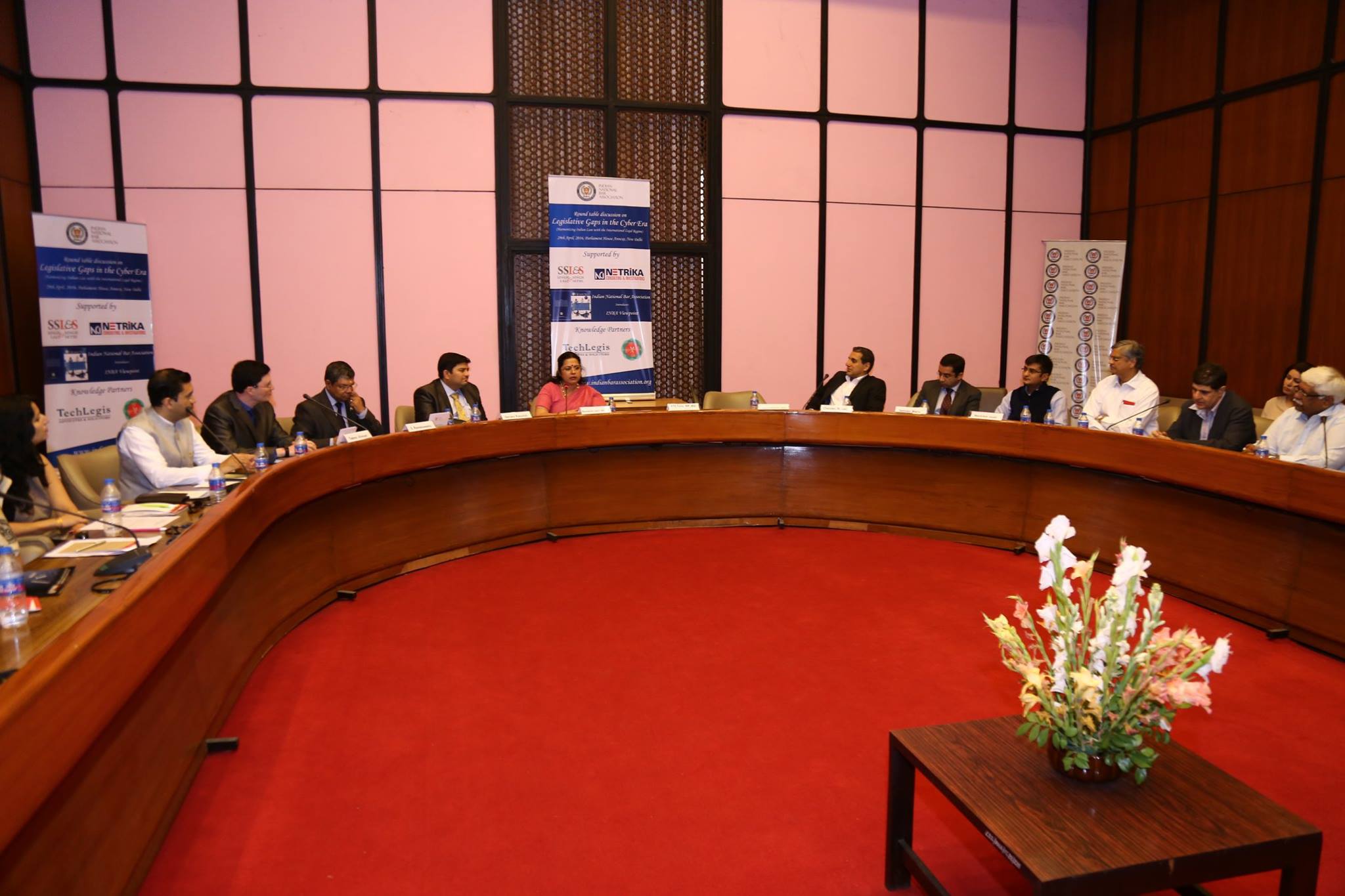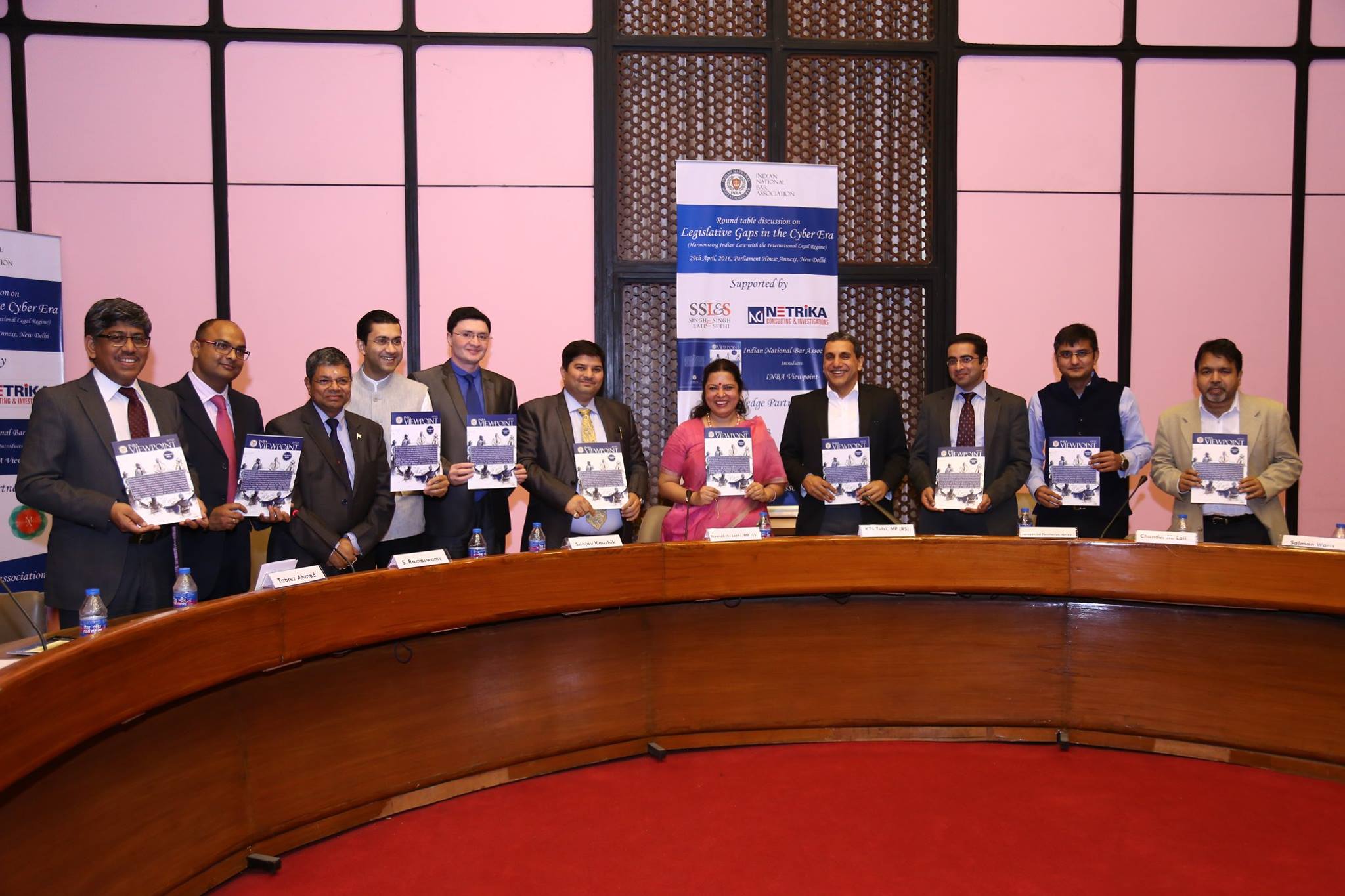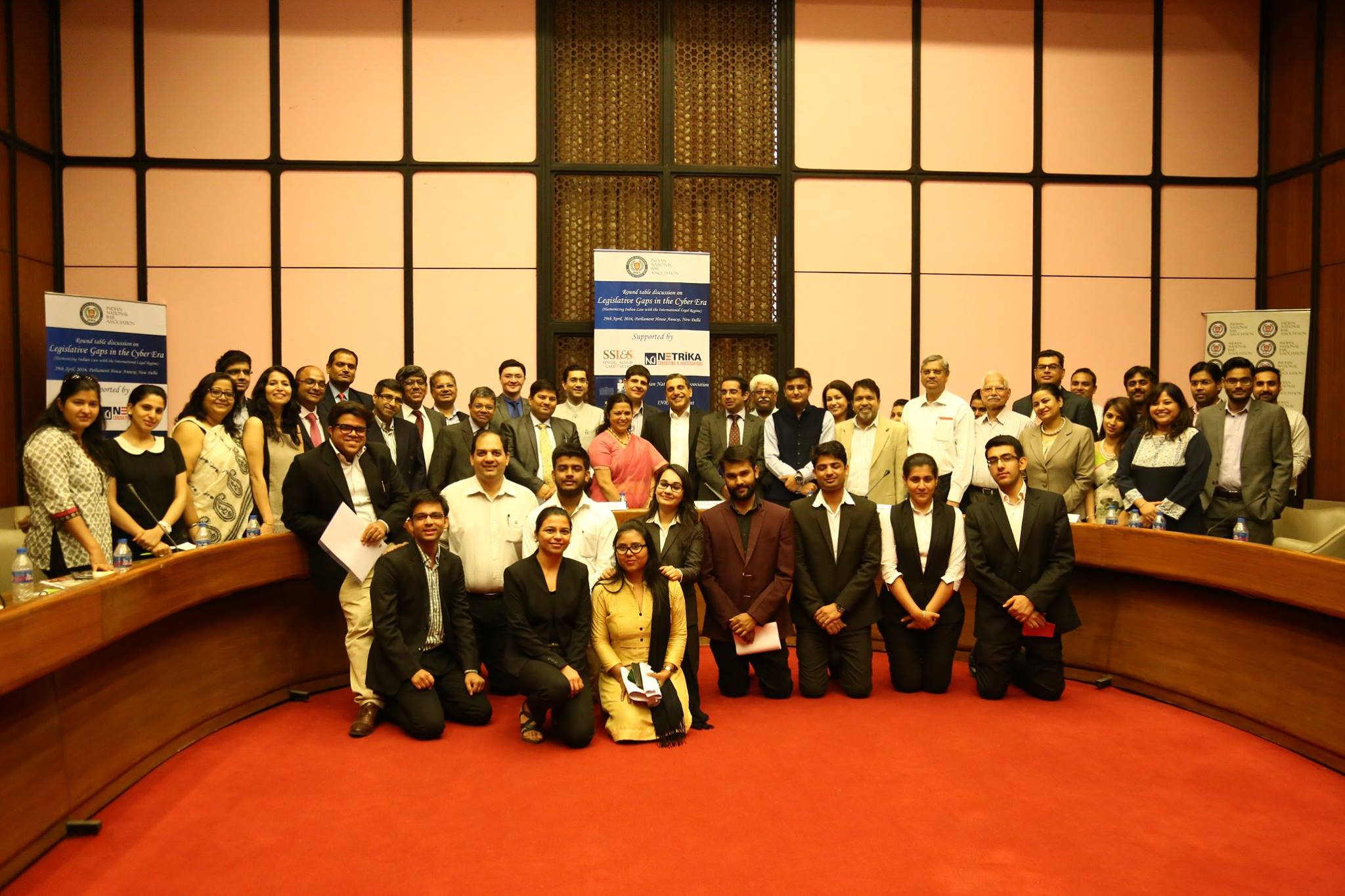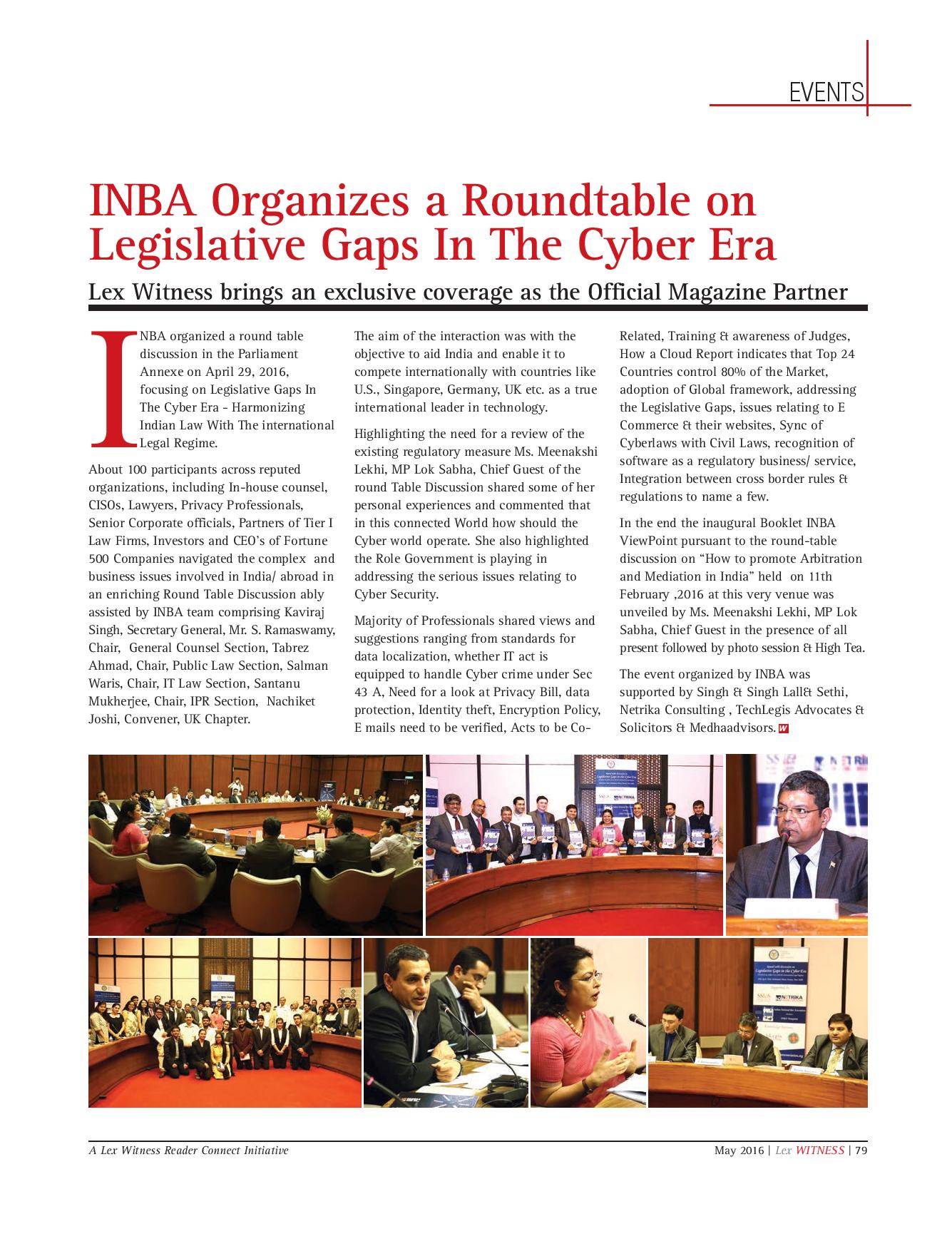
This article published by Lex Witness:
India is leading the global e-economy and the technological revolution but unfortunately its legal regime has often fallen short of catering to and regulating the fast evolving technological landscape and the information revolution.
Series of major initiatives by both, the Law Makers (Govt. of India) and the Judiciary (Supreme Court) recognize the imperative need for developing a culture for appreciation of the issues involved with cybercrimes and the law in India.
India as a country, was the twelfth nation in the world to legislate on cyber law, adopting an Information Technology Act, and has also brought about certain amendments to the Indian Penal Code and the Indian Evidence Act to aid in cyber-crime investigation and prosecution. The government has made efforts towards putting in place a National Cyber Security Policy that addresses several areas related to cyber security, particularly incident response, vulnerability management and infrastructure security.
Cyberspace being the fifth common space, it is imperative that there be coordination, cooperation and uniformity of legal measures among all nations with respect to Cyberspace. The peculiar nature of cyberspace implies that existing laws are largely ineffective in curbing cyber-crime and terrorism, thus creating an urgent need to either modify existing legislation or to enact laws that are effective in checking the growing menace online. Internet security is a global problem and cyber-crime and terrorism are increasingly becoming a worldwide nuisance. Only international cooperation will enable the nations of the world to better crackdown on cybercrime and ensure healthy development of the internet.
Since the internet is not limited by national geographical boundaries, its requires that any regime that is set up with regard to the internet be one that is applicable not only to a given state, but should have global application, anywhere on the internet. To meet this end, it is now the need of the hour that nations of the world cooperate and make constructive efforts to reduce vulnerabilities, threats and risks to manageable levels. Attempts that have been made so far, including the EU Convention on Cybercrime or the OECD Guidelines and even the probable extension of the Law of Armed Conflict to Cyberspace are not without their respective glaring loopholes and deficiencies.
The Govt. on its part enacted the Information Technology Act in 2000 which was subsequently amended in 2008 and additional Rules were framed there under in 2011 to deal with issues relating to cybercrimes and data protection but still the law fails to catch-up with the fast changing technological developments and nature of digital crime in the cyberspace. In 2015 the Supreme Court of India passed the landmark judgment striking down the legality of section 66A of the Amended IT.
While the Supreme Court decision and the recent directives issued under the IT Act all steps in the right direction and argue well for India as a technological destination and outsourcing hub, which under the leadership of Hon’ble Prime Minister is encouraging foreign companies to come & invest here as part of the “Make in India Campaign”.
The Make in India Campaign can only be successful if there is a proper legislative and effective prosecution mechanism in place to deter cybercrimes and punish any offenders, we need to develop not only attractive campaigns but also effective culture of Cyber literacy to prevent cybercrimes.
The Round Table Discussion in Parliament Annexe on April 29, 2016
With the above background a think-tank interaction of around 100 nos of accredited reputed In-house counsel, CISOs, Lawyers, Privacy Professionals, Senior Corporate officials, Partners of Tier I Law Firms, Investors and CEO’s of Fortune 500 Companies navigated the complex and business issues involved in India/ abroad in an enriching Round Table Discussion ably assisted by INBA team comprising Kaviraj Singh, Secretary General, Mr. S. Ramaswamy, Chair, General Counsel Section, Tabrez Ahmad, Chair, Public Law Section, Salman Waris, Chair, IT Law Section, Santanu Mukherjee, Chair, IPR Section, Nachiket Joshi, Convener, Uk Chapter.
View more: Click Here
The aim of the interaction was with the objective to aid India and enable it to compete internationally with countries like U.S., Singapore, Germany, UK etc. as a true international leader in technology.
Highlighting the need for a review of the existing regulatory measure Ms. Meenakshi Lekhi, MP Lok Sabha, Chief Guest of the round Table Discussion shared some of her personal experiences and commented that in this connected World how should the Cyber world operate. She also highlighted the Role Government is playing in addressing the serious issues relating to Cyber Security.
In his inaugural speech introducing the topic Mr. S. Ramaswamy, Chair, General Counsel Section, observed that Man created Computers as Tool to aid Technology and while it has ushered in a revolution in the Technology field, it has also become a target for Cyber Crimes and the world today is seized of legal issues relating to Internet i.e Technology in Cyberspace. He also called for that this interaction today will address the need for Cyberlaw on Cyber Crime within National Jurisdiction of Countries and unify them in their common goal of fighting Cyber Crime.
Mr Sanjay Kaushik, Managing Partner, Netrika Consulting highlighted the need for one single jurisdiction across the country and also stressed on the need for a fresh look at cyberlaw on an ongoing Basis as also create laws having single window clearances, need for Trainings. Mr. Chander M. Lall, Managing Partner, Singh & Singh Lall& Sethi, stressed on Laws relating to Data Security. He emphasized on delegation on Cybersecurity. Also highlighted on the fact that Big Brands are being coerced to pay to remain on Top in the Internet world for Indexing Services by Service Providers matter which the Supreme Court is Seized of.
Majority of Professionals shared views and suggestions ranging from standards for data localization, whether IT act is equipped to handle Cyber crime under Sec 43 A, Need for a look at Privacy Bill, data protection, Identity theft, Encryption Policy, E mails need to be verified, Acts to be Co-Related, Training & awareness of Judges, How a Cloud Report indicates that Top 24 Countries control 80% of the Market, adoption of Global framework, addressing the Legislative Gaps, issues relating to E Commerce & their websites, Sync of Cyberlaws with Civil Laws, recognition of software as a regulatory business/ service, Integration between cross border rules & regulations to name a few.
“Series of major initiatives by both, the Law Makers (Govt. of India) and the Judiciary (Supreme Court) recognize the imperative need for developing a culture for appreciation of the issues involved with cybercrimes and the law in India” observed Mr. Salman Waris, Partner, TechLegis, Advocates & Solicitors and Chair, IT Law Section, INBA in his concluding remarks.
Mr. S. Ramaswamy Chair, GC Section in his closing remarks thanked Hon’ble Mr. KTS Tulsi, Senior Advocate, Member of Parliament, Rajya Sabha for his constant encouragement & support in both the programs held in parliament as also for his contribution and to Mr. Kaviraj Singh, Secretary General INBA along with other INBA functionary.
In the end the inaugural Booklet INBA ViewPoint pursuant to the round-table discussion on “How to promote Arbitration and Mediation in India” held on 11th February, 2016 at this very venue was unveiled by Ms. Meenakshi Lekhi, MP Lok Sabha, Chief Guest in the presence of all present followed by photo session & High Tea.
The event organized by INBA was supported by Singh & Singh Lall& Sethi, Netrika Consulting, TechLegis Advocates & Solicitors & Medhaadvisors.


